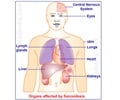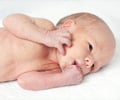Babies born prematurely in winter may be more at risk from lung infections, like RSV, than their counterparts born in a different season.
With premature births at a record high, more babies are facing serious health challenges in their first year. These problems include respiratory infections that can compromise infants’ lung function, leading to potentially serious respiratory problems. This is a particular problem during the winter, when RSV, influenza, human metapneumovirus, and several other important respiratory viruses are usually in the community.Neonatal experts from Children’s Hospital Boston had urged pediatricians and parents to take action to protect premature babies during the upcoming virus season, which begins in October and lasts through April—and in some parts of the country, beyond then.
Although RSV’s symptoms are often similar to those of a cold or influenza, its consequences can be significantly more serious for premature infants. RSV often starts with a runny nose, coughing and low-grade fever, but as the infection progresses, it causes breathing problems or wheezing, irritability or restlessness, and poor appetite.
Preventing infection is the best way to protect preemies and particularly high-risk babies, such as those with congenital heart or lung disease or a compromised immune system, from the potentially dangerous effects of RSV and other respiratory viral infections.
Other documented risk factors for severe RSV infection include: low birth weight, multiple birth, family history of asthma, severe neuromuscular disease, congenital abnormalities in the airways, school-age siblings, day care attendance (CDC definition: two or more unrelated children together for four or more hours a week), crowded living conditions, and exposure to environmental air pollutants.
In addition to beginning RSV prevention medication and continuing dosing throughout the season, to reduce the risk of severe RSV infection, parents can decrease their babies’ exposure to respiratory viruses after taking them home, by: always washing their hands before holding their child, and insisting that others do, too; washing babies’ toys, clothes, play areas and bedding often; not sharing personal items (pacifiers, cups, forks, spoons, towels, washcloths); keeping babies away from anyone with a cold or influenza, and avoiding crowded areas and day care during RSV season; and never letting anyone smoke around the baby.
Advertisement











